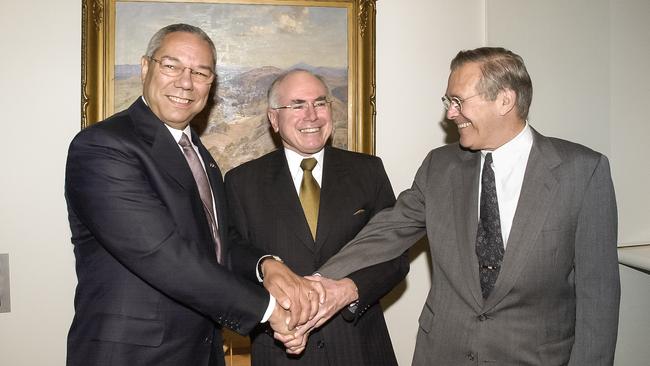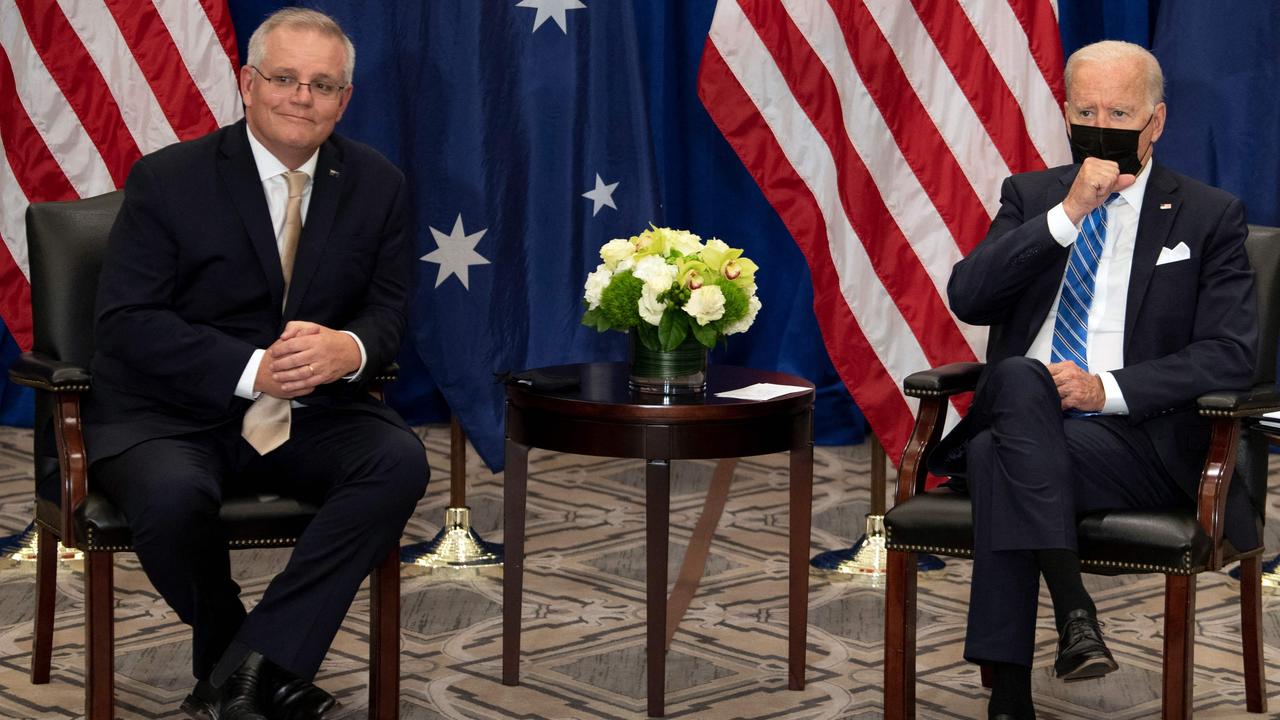Defence in chaos over 9/11 threat
Planners concluded Australia was now a likely target for terrorism and that the nation’s counter-terrorist capabilities need to be upgraded.

There was deep uncertainty among Australia’s defence planners about what the attacks of September 11, 2001, would mean for the nation’s defence, the cabinet papers reveal.
The documents show confusion about whether the terror attacks would require a fundamental rethink of Australia’s defence strategy or merely a tinkering to enhance the ADF’s counter-terror capabilities. They reveal cabinet was fearful of terror attacks in Australia and believed the country did not have adequate counter-terrorist capabilities.
A cabinet submission by then defence minister Peter Reith on October 2, 2001, less than a month after the terror attacks in New York and Washington, states “the events of September 11 raise some important questions about our strategic fundamentals”.
“The terrorist attacks in the United States do not necessarily invalidate this strategic setting or the white paper’s guidance for Defence’s priorities. But it would be inappropriate to assume that nothing had changed,” the submission says.
In the immediate aftermath of the 9/11 attacks, defence planners divided their priorities into urgent and non-urgent actions.
In the short term they approved an immediate boosting of the ADF’s counter-terror response by setting up a second Tactical Assault Group as well as enhancing chemical, biological and radiological response and explosive ordinance incident response.
But there was uncertainty about the longer-term implications for the nation’s defence strategy, which had been outlined in the 2000 Defence white paper released 10 months before the 9/11 attacks.
“The extent of change in our strategic situation will be better understood in the light of the approaching US-led military campaign and the response to it by Osama bin Laden and other terrorists who operate across borders,” the submission stated.
“The course of this conflict will provide a better basis for judging how our strategic situation will change, what that means for the shape and preparedness of our current capabilities and what it means for the direction of our future capabilities.”
But the submission warned more urgent action was also required because Australia was now a likely target for terrorism.
“September 11 calls for more urgent action. The course of events unveiled by the terrorist attack might affect Australia directly,” it said.
“Indeed, our current profile in support of actions against terrorism raises our profile with the terrorists themselves; and intelligence reporting indicates that terrorist attacks in Australia cannot be discounted.
“Moreover, the attacks in the United States demonstrated a capacity for simultaneous terrorist actions in different locations; this is a threat that would be highly problematic for our counter-terrorist forces at their current level of capability.”
Mr Reith’s submission warned that the boosting of domestic security capabilities “should not distract from the ADF’s ability to meet current operational and contingency commitments”.
“Secondly, there will be an impact on defence resources that will require either the reprioritisation of white paper initiatives and tasks or supplementation of the defence budget,” it said.
The 9/11 terror attacks ultimately had a major impact on the ADF because it led to the deployment of Australian troops in long-term conflicts in Iraq and Afghanistan.
However, in Australia the ADF eventually played a secondary role to the intelligence agencies and state and federal law enforcement agencies in beefing up Australia’s counter-terror capabilities.




To join the conversation, please log in. Don't have an account? Register
Join the conversation, you are commenting as Logout